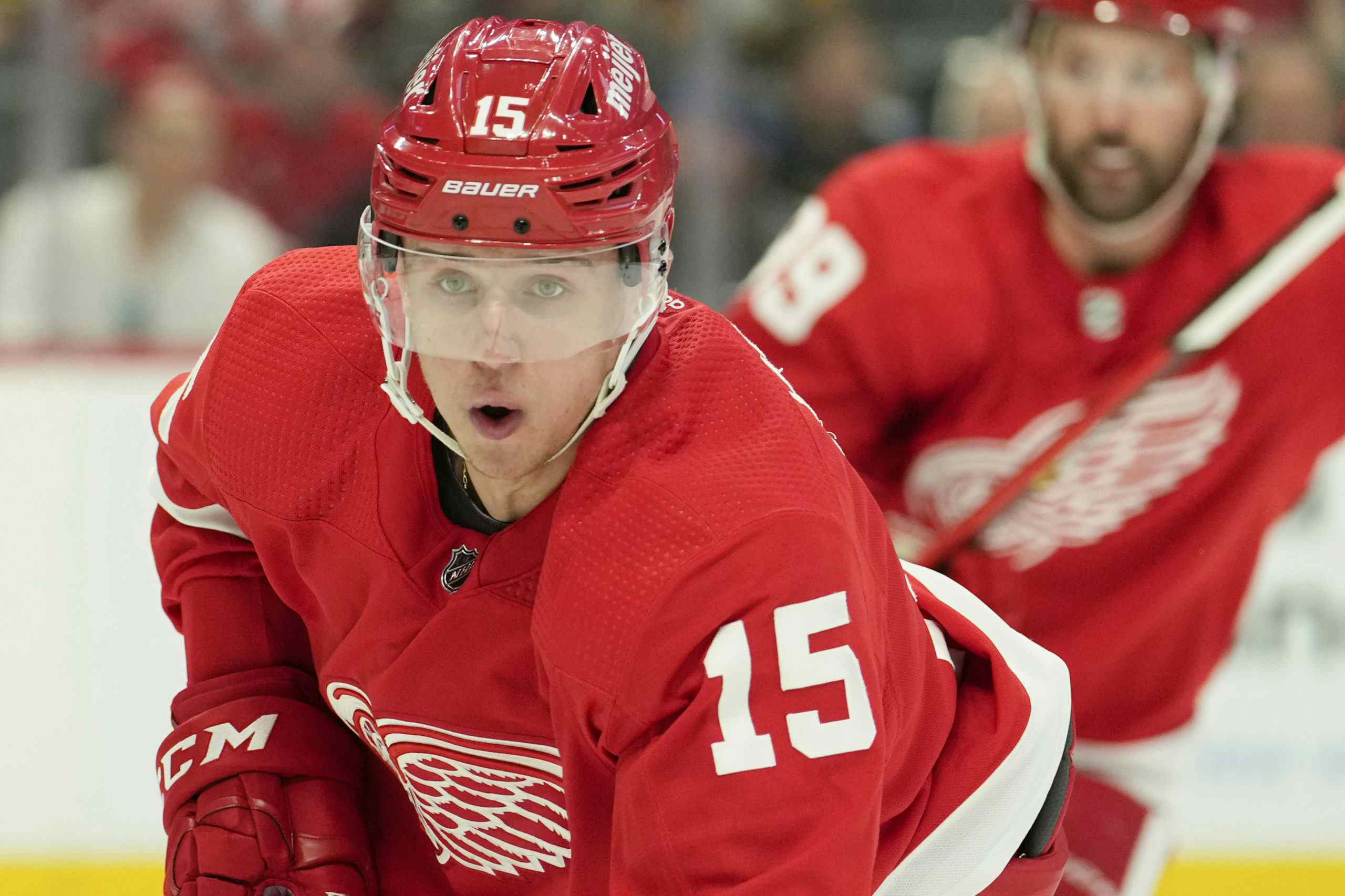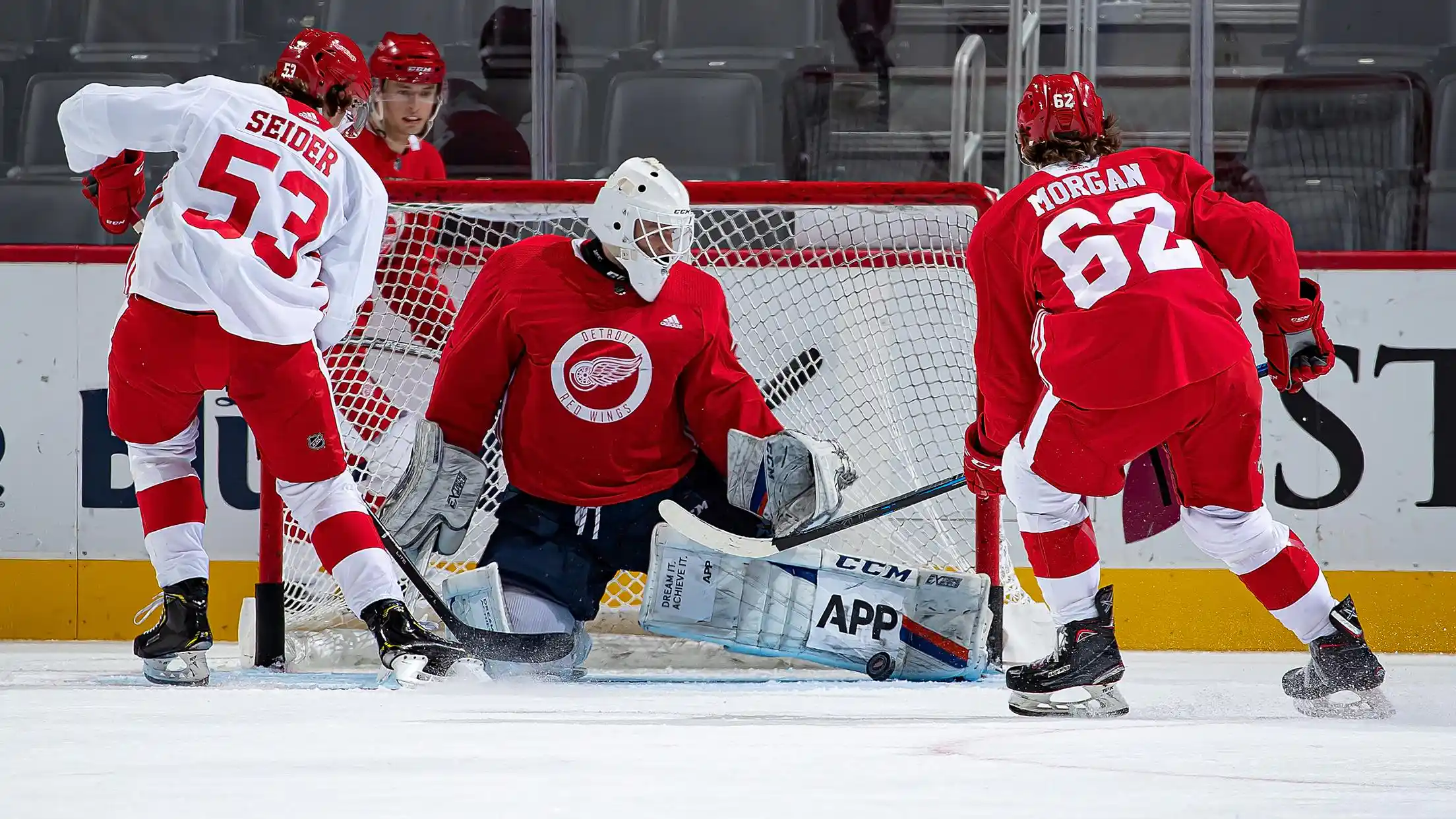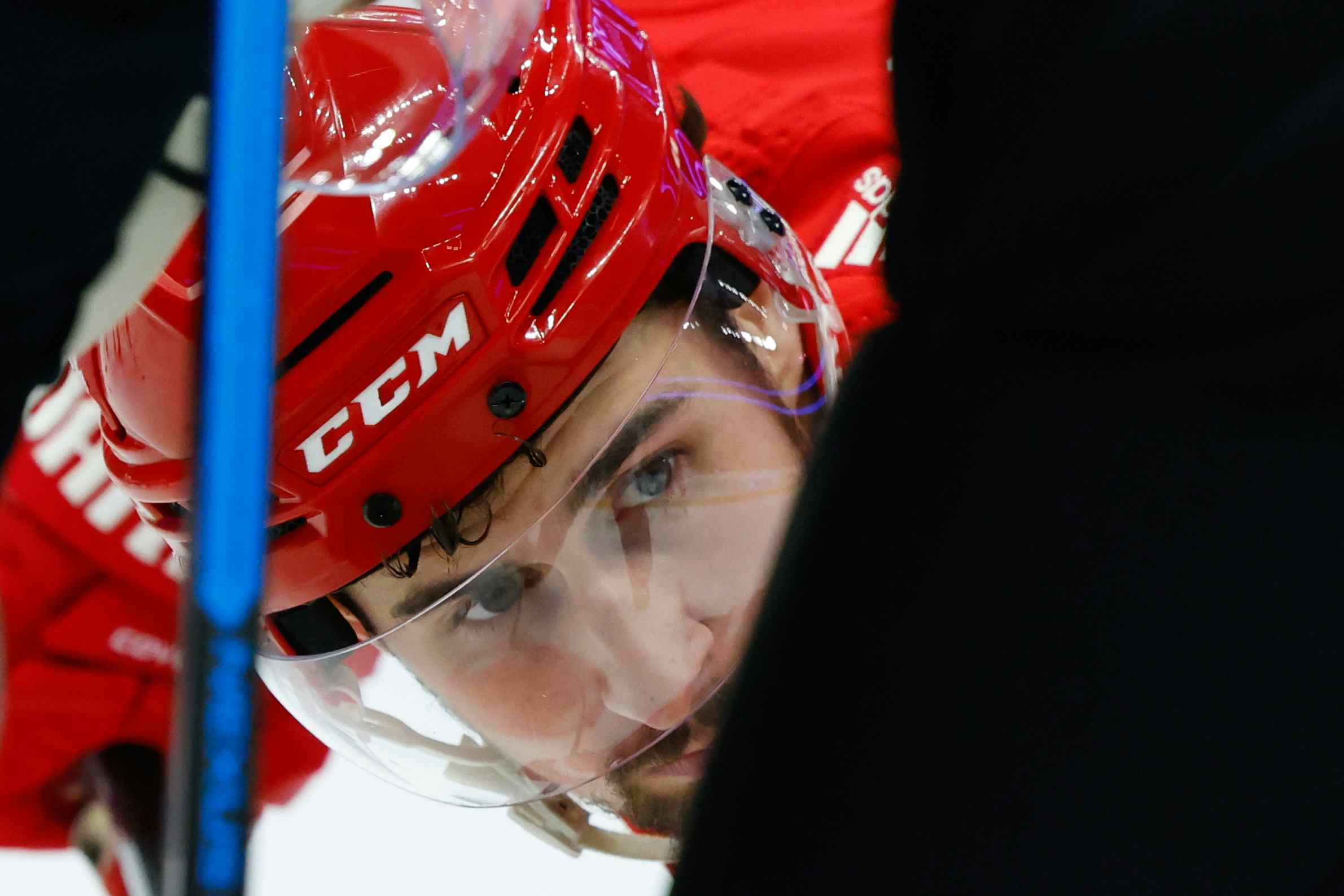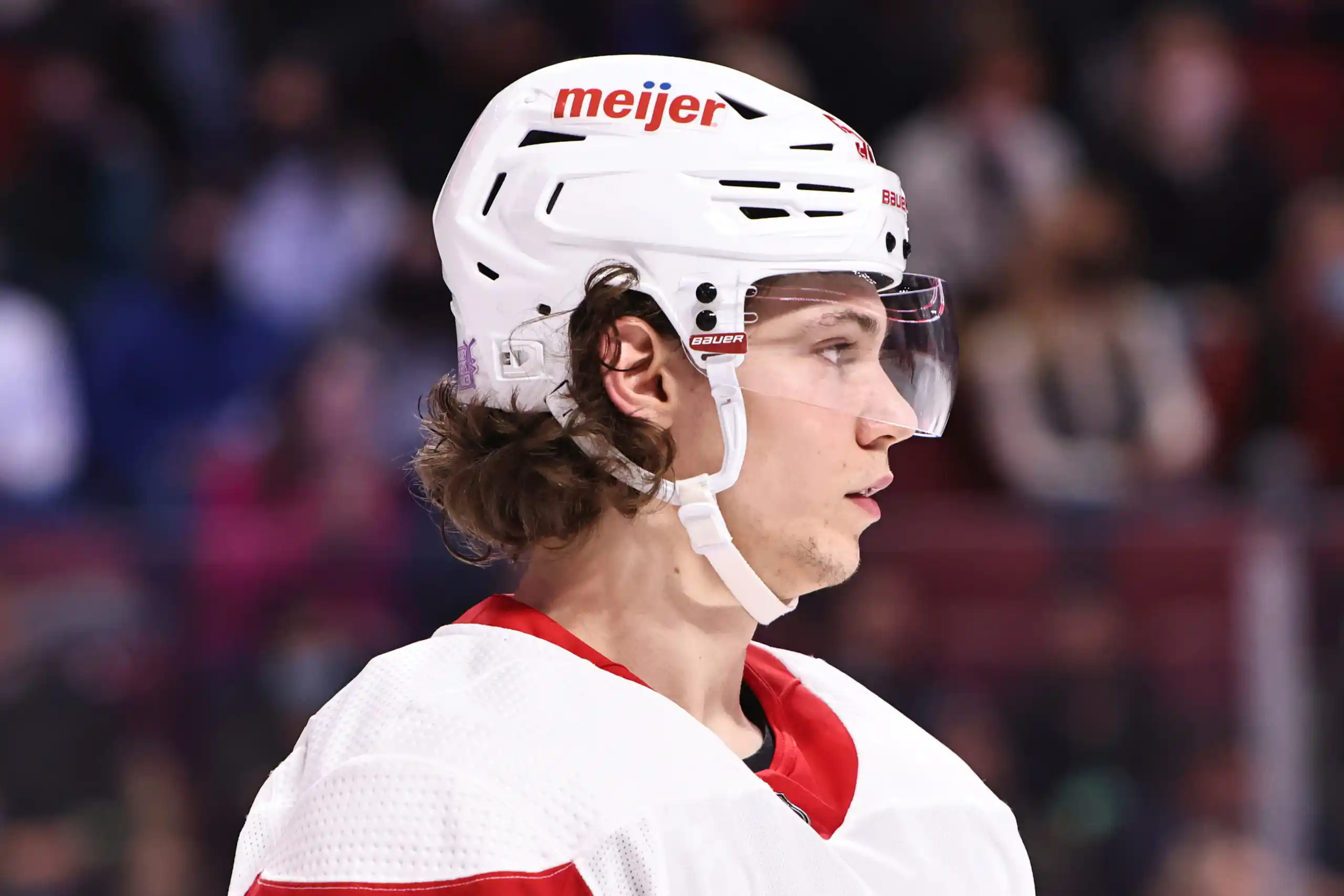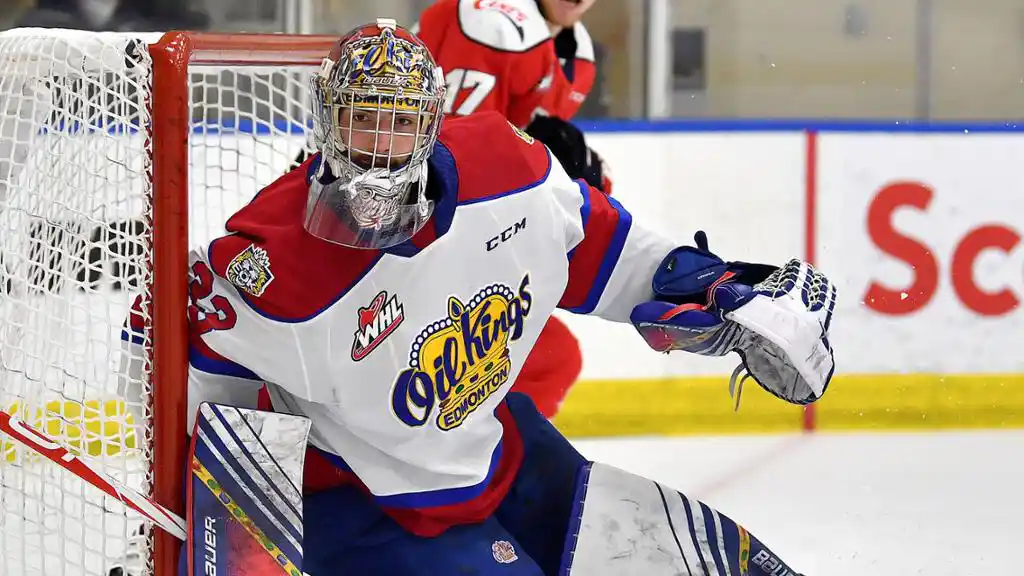A Requiem For Ken Holland
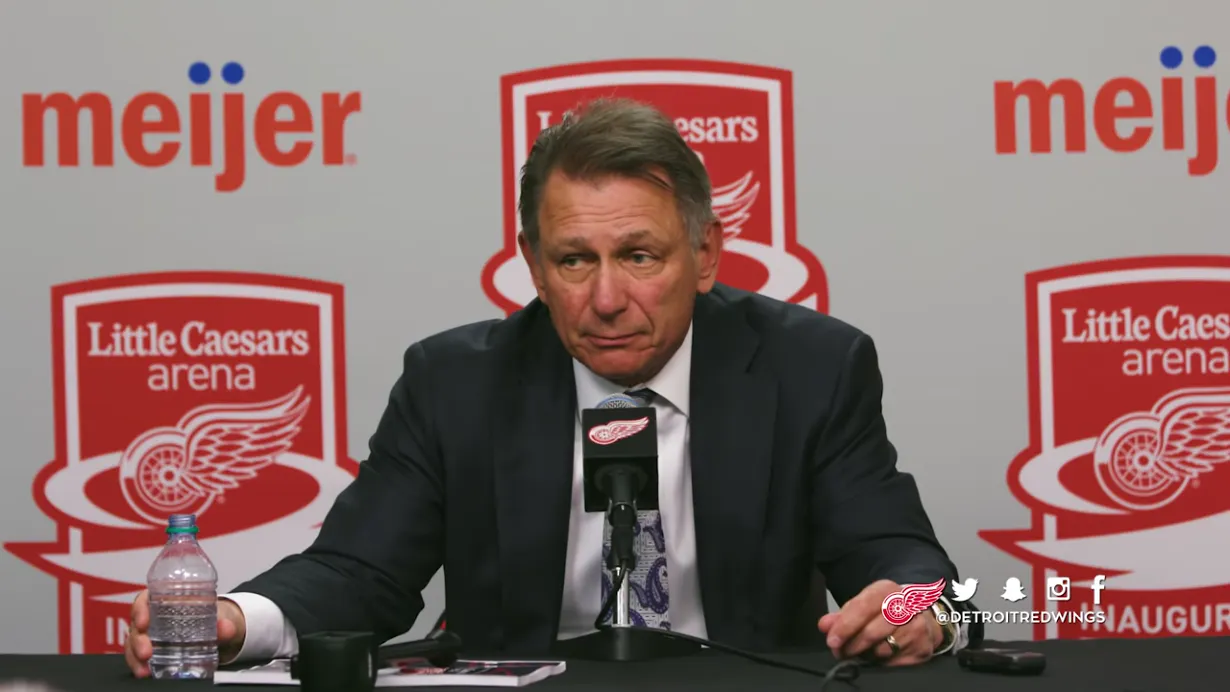
By Alex Drain
5 years ago Well, let’s face it: yesterday was the day Red Wings fans have waited for for a long, long time. Steve Yzerman, the Captain and the icon of Hockeytown, is coming home as General Manager.

This was met with jubilation and nostalgia, ecstasy and great expectations, that Yzerman will rescue the Red Wings from the NHL’s cellar that they have occupied for the last three seasons. And while this is undeniably a beautiful day for the Wings, given Yzerman’s extensive track record of having constructed Tampa Bay from being a similar cellar-dweller to a power house (94 points or more in six straight seasons), it also signals what is likely the beginning of the end for (now) former General Manager, Ken Holland.
Holland will become the “Senior Vice President” and, while he was given an extension with the team, how long he decides to stay on in Detroit in a reduced capacity remains to be seen and other teams will certainly offer him jobs in the near future to be a GM again (Seattle?). So while most are writing their “Hello: Stevie Y” pieces, I will be writing the “Farewell, Ken Holland” piece, looking back on his long and winding career as GM in Detroit, and understanding how he got the rebuild to where it is today.
The Dynasty
Ken Holland joined the Red Wings in the mid-1980s after he retired as a player, starting as a scout before moving up the ranks all the way to Assistant GM. He was handed the keys to the car in the summer of 1997, and was given not a terribly difficult job: win as many more championships as possible.
The team was on the heels of their first win and they would repeat the following season. Holland spent the first 10 years of his career as a GM going wild in the pre-salary cap days, splurging on countless legends like Luc Robitaille, Dominik Hasek, Brett Hull, and Curtis Joseph. He made the aggressive moves to keep the team near the top of the NHL, acquiring Chris Chelios, Robert Lang, and Mathieu Schneider within a 5 year period. He helped assemble the legendary 2001-02 team that won the Stanley Cup for the 3rd time in 6 seasons with a roster straight out of the Hall of Fame.
Even after the institution of the salary cap, a fresh crop of younger players (Henrik Zetterberg, Pavel Datsyuk, Johan Franzen, Valterri Filppula, Jiri Hudler) allowed the Wings to remain a contender and they won the title in 2008 and came one painful game short of a fifth ring in 2009.
The achievements were astounding: 10 division titles, three Stanley Cups, four Western Conference titles, four Presidents’ Trophies, and 100+ points in 13 of his first 14 seasons as a GM. While some would argue that being handed Steve Yzerman, Nicklas Lidstrom, and Sergei Fedorov and being asked to win championships is easy, Holland made decisions with surgical precision in the early parts of his tenure and no team was better at developing draft talent than Detroit. While everyone focused on the late round stars, the ability to consistently develop solid NHLers despite never picking in the top half of the first round was astounding. Holland deserves plenty of credit for that.
The Streak
Holland became Public Enemy #1 in Hockeytown during the window of 2012-2016, when his focus shifted from winning a Stanley Cup to keeping the playoff streak alive. In the summer of 2012, Lidstrom retired, leaving the Red Wings with a gaping hole on the blue line. At the same time, Datsyuk was set to turn 34 and Zetterberg was set to turn 32. It was evident that the dynasty was about to begin a steep decline with no fresh talent waiting in the Wings, but Holland decided (likely at the direction of ownership) to do everything he could to keep the playoff streak alive. That started with trying to sign superstar free agents Zach Parise and Ryan Suter in the 2012 offseason, which failed when both signed with Minnesota. Then it turned more into trying to lock in players as they were to long-term deals, many of which did not look great in hindsight.
The team barely made the playoffs in 2013 and in the offseason, Holland signed Stephen Weiss to try and fix the #2 center position, a deal that went horribly wrong. In the midst of a tight playoff chase in 2014, Holland gave up significant capital for one month of David Legwand, all so the team could once again slip into the playoffs.
In 2015 the team was in slightly better shape and Holland tried to swing for the fences, surrendering two prospects and a second rounder for Erik Cole and a third rounder for Marek Zidlicky, two deals that really did not work out. All of those trades were purely to extend the streak, as the Red Wings won a combined 0 playoff series in 2014 and 2015. By 2016, the team was limping along and chose not to be aggressive at the deadline and they backed into the postseason by the skin of their teeth. With Datsyuk retiring to return to Russia in the offseason, Holland made one last attempt to extend the streak by clearing the cap to try and sign superstar Steven Stamkos, a move that hilariously failed, prompting Holland to frantically sign Frans Nielsen and give Darren Helm a hefty extension, moves that haven’t looked great. In 2017, the streak finally came to a decisive close.
The demise of the playoff streak was really no fault of Holland’s. It was Father Time catching up with a two decade long dynasty that had cheated death long enough. The streak should have ended in the mid-2000s when the original core (Yzerman, Fedorov, Shanahan, Chelios, etc) aged out. But the Red Wings got to extend the streak an extra decade thanks to two of the greatest draft steals of all time (Zetterberg and Datsyuk) as well as the fact that Nick Lidstrom aged better than any hockey player in modern history.
While there’s no doubt that the Wings drafted better than any other organization for an extended period, getting hall of famers out of 6th and 7th rounders in consecutive drafts is a bit lucky and repeating it was not feasible. What did prove problematic was Holland’s aggressive style in extending the streak, with the trades and signings bordering on reckless, and the extensions (8 years to Justin Abdelkader????) were mostly incomprehensible. While it is true that the rebuild should have began shortly after Lidstrom’s retirement, it’s impossible to view this era of Holland’s tenure without the knowledge that in all likelihood, the decision to aggressively extend the streak was likely coming from ownership. After all, this is an ownership group that plastered the playoff streak all over rally towels, center ice, commercials, and more. The streak clearly had sentimental value to the Ilitch Family and there was an apparent strong desire to not let it end without a fight.
The Rebuild
After the 2017 season, Holland pivoted to rebuilding and while many knuckleheaded fans continued to complain, the more observant and informed fans noticed a change in Holland’s philosophy. Most notably, the costly contracts to veteran free agents ceased.
In the past two offseasons, the Red Wings signed Trevor Daley and Thomas Vanek. That’s it. Neither guy was signed to expensive or long term deals either. Holland also became a clear cut seller at the deadline for the first time, unloading Tomas Tatar last year and Nick Jensen and Gustav Nyquist this year in exchange for a total of one 1st, three 2nd, and a conditional 3rd round pick. Not bad at all.
His deadline strategies have set the Wings up with an astounding amount of draft picks, including 11 picks in 2017, 10 picks in 2018, 10 picks this summer, and 9 picks next year. His restraint with the salary cap has started to free up the Red Wings with money, as the team is set to be significantly under the cap next season and they have just over $30 M on the books for 2020-21 (the cap will likely be in the $85 M neighborhood that year), giving the team much more flexibility.
While Holland will exit the General Manager position as an unpopular person in parts of Hockeytown, he may well be looked back on as the guy who got the ball rolling for a renaissance of Red Wings hockey. He certainly is not leaving the roster in disrepair, handing Yzerman several quality building blocks. That includes Dylan Larkin, Anthony Mantha, Tyler Bertuzzi, Andreas Athanasiou, Michael Rasmussen, Filip Hronek, and Dennis Cholowski, as well as a farm system that generally rates in the top 10 in the league, featuring prospects like Filip Zadina, Filip Larsson, Joe Veleno, and Jared McIsaac.
He also hands Yzerman the 10 picks in this year’s draft, including the #6 overall selection and three second rounders. Holland was not a perfect General Manager, but he noticeably improved in recent years, starting the team down the right path. The team is still a long ways away from contention, but they have some pieces to build around and a lot of young talent on the way. Holland was rather poor at roster management, but he was also not bad at drafting in recent years, having mined Athanasiou out of the fourth round, uncovered Bertuzzi out of the late second round, got a franchise center out of pick #16 in Dylan Larkin, and picked a very promising young defenseman in Filip Hronek in the late second round.
Holland’s legacy is complicated, and it has to be viewed in stages, which is why I broke it up as such. He was not perfect, but no GM is. He got too much credit for winning when he had unlimited resources and players handed to him, but also got too much blame when put in charge of a prideful organization with ownership addicted to winning. He made mistakes, but he also leaves the Red Wings in a position where they have a glimpse of a brighter future and hope on the horizon.
It was also revealed to the world that Holland made the selfless decision to recruit Yzerman back to Detroit and was more than willing to step aside for him. He is a Red Wings lifer through and through and the organization should honor him for that. Most of all, he had a hand in winning four Stanley Cups and all we can do is hope that the players he leaves behind have a big part in raising another one in Hockeytown.
Recent articles from Alex Drain

